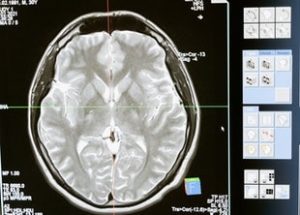The Brain Function, Damage and Recovery (Short Course)
What to expect:
Discover what makes your brain tick in this short course on Neuroscience – from understanding how the human brain functions, how it recovers from damage, to its anatomy and biology.
The human brain is an amazing piece of architecture. Weighing in at an average of just 3 pounds, or 1.3kg, our brains have evolved to be the most complex organs on the planet, and they are more organized than the entire cosmos. It is estimated that they contain 100 billion neurons and there are some 100 trillion connections between them. It is perhaps not surprising that studying the brain has been the life’s work of so many eminent scientists. Some would argue that given their intricacy, our brains are not even capable of understanding themselves.
How does it work?
Our 20 hour courses are self paced and will help you understand a topic in a short amount of time. You can work through the course when you like- test yourself with mini-tests along the way. There are extra case studies or research you can undertake if you would really like to get into the topic. Once you have completed the lessons and self assessment tasks, there is a final exam undertaken online. You can then download your personalized certificate.
Note: these short courses are self-guided online courses and are not to be confused with our tutor-supported online courses.
Course Outline
There are 8 Lessons in this course:
1. Understanding the Human Brain
- The biology of the brain
- How can studying animals help?
- Who is interested in the brain?
- The mind-brain problem
- Brain studies
2. Brain Anatomy and Behaviour
- The structure of the brain
- Forebrain
- Midbrain
- Hindbrain
- Divisions of the brain
- The lobes
- The normal functioning of the brain
- Case studies
- Brain plasticity and the impact of behaviour
- Brain development from embryo to death
- Blood- brain barrier
3. Brain Chemistry
- How neurons transmit messages
- Neurochemistry
- Neurons in detail
- Diet and neurotransmitters
- Neurotransmitters and behaviour
- Drugs and neurotransmitters
- Ways of detecting and studying brain chemistry and electrical activity
- Practical benefits of measuring brain chemistry and electrical activity
4. Biology and Neurology of Learning and Memory
- Biopsychology & neurology of learning
- Memory
- How is memory organised?
- Case studies – memory
5. Brain Damage
- Brain damage & neuropsychology
- Brain lesions
- Causes of brain lesions
- Tumors
- Cerebral disorders (stroke)
- Pathology of brain injury
- Environmental factors
- Practical benefits in daily life
- How disease can alter brains
6. Assessments and Outcomes of Brain Damage
- Types of brain injury
- Sequelae of brain injury
- Sexual functioning
- Initial assessment
- Further testing
7. Treatment and Management of Brain Damage
- What is appropriate treatment?
- Patient-clinician relationship
- Patient compliance
- Treating brain lesions
- Outcomes of treatment
- Developing management plans
- Ending treatment
8. Applications of Neuropsychological Research
- Assessment & rehabilitation
- Brain studies and children
- Other applications of research into brain & behaviour
AUD:
$199.00
What to expect: Discover what makes your brain tick in this short course on Neuroscience – from understanding how the human brain functions, how it recovers from damage, to its anatomy and biology. The human brain is an amazing piece of architecture. Weighing in at an average of just 3 pounds, or 1.3kg, our brains […]
Enroll Anytime
Delivery Online
Includes Lessons, Quizzes, Final Test, Certificate


Get more info
Get started today
Duration 20 hoursEnroll Anytime
Delivery Online
Includes Lessons, Quizzes, Final Test, Certificate

